9 types of human personality that managers, people and marketers need to know
A good leader is someone who can connect with others, inspire them to share their vision, goals, provide a clear direction of the organization's development and keep everything go in the right way through feedback. However, how to control all the members of the group is something that leaders, managers and leaders always face, especially when some people have some personality "not like Who". Conflict and failure at work can happen if the leaders cannot grasp those differences.
In this article, TipsMake.com will introduce to you the very famous Enneagram tool and very effective application in the world in many fields, including recruitment, human resource management, business and management. sales and marketing team, training and counseling for career development, education, arts, health, parenting or psychotherapy . Enneagram describes 9 personality types, 9 reactive models emotions and 9 different patterns of human behavioral tendencies .

Enneagram emphasizes that each type of personality can be a source of strength for self-development but can also become a weakness if used wrongly or lack of flexibility leading to unexpected conflicts or failures. These bad situations are not entirely due to human ability, but mainly from the differences between individuals about personality, preferences and communication methods. Through Enneagram, we can find hidden corners in our character to build a team of leaders, effective working groups aiming to optimize the ability to cooperate and contribute to boosting productivity in the enterprise.
Enneagram structure
Enneagram's structure seems to be very complicated even though the model is quite simple.
To be able to understand this tool on your own, you can sketch the Enneagram in paper and pen as follows: Draw a circle and mark the 9 points on the circle so as to divide the shape into 9 equal parts. Mark each point with numbers from 1 to 9 with the number 9 on the top like the image below. Each of these points represents a basic personality.
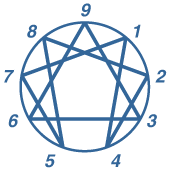
9 points on this circle are also connected together through straight lines inside. Notice that points 3, 6 and 9 form an equilateral triangle. The remaining 6 points are connected together in order: 1 connected to 4, 4 connected to 2, 2 connected to 8, 8 connected to 5, 5 connected to 7 and 7 connected to 1, forming a hexagon all.
Why is Enneagram important?
As mentioned above, Enneagram is a model that describes 9 distinct personalities, 9 types of emotional response patterns and 9 different behavioral patterns. Each of these personalities has the wrong side that can cause each person to fall into unexpected situations if overused. Therefore, the balance here is to promote the character of their resilience while still exploiting the strengths of other types of personality.
Enneagram is the starting point of self-knowledge because it is used as a "mirror" to reveal characteristics in character that we often don't recognize. Mostly, people act in a habit, like "an automatic plane", according to basic personality patterns. This allows you to adapt well enough to life. However, when everyday habits are broken or stressful happens, that familiar behavior will no longer work.
Basic personality types
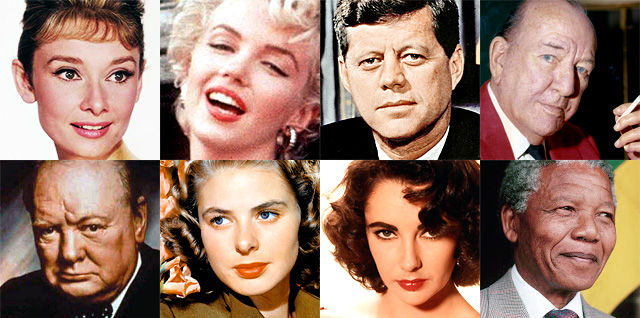
Each person from a young age has a personality (among the 9 personalities) that dominates with innate temperament and other factors that appear before being born are crucial to character formation. This is what most Enneagram authors all agree on - we have a dominant personality (superior to other personalities). After that, this innate orientation determines most of the way we adapt to our surroundings. This also seems to entail some unaware of everyone's "ideal parents" image, but why is it that researchers still cannot explain it. In all cases, by the time of 4 or 5 years, your child's awareness will develop enough to have a distinct sense of self. Although this identity is more likely to change over time, at this age, children have begun to consolidate their position and find ways to get along with the world.
Notes when using Enneagram to "read the taste" of human personality
- People do not change from this basic personality to another.
- Description of personality types is very wide and applies equally to both men and women. There are no types of personalities that are inherent to men or women.
- Not everything in the basic character description will be right for you all the time because health, standards and other unhealthy characteristics can make basic character when applied to each person. certain adjustments.
- Enneagram uses numbers to name each type of personality because numbers are neutral values - they refer to a series of attitudes and behaviors of each type without specifying anything negative. or positive. Unlike labels used in psychiatry, the numbers provide a quick and unbiased method to express many things about a person without implying anything bad.
- The ranking of numbers doesn't mean anything. Large numbers are no better than small numbers, meaning 9 is no better than 2 because its value is greater.
- There is no better or worse personality than the other characters. While all personalities have certain strengths and weaknesses, some are often viewed as more desirable than others in some groups or cultures. Moreover, for one reason or another, you may not be happy to own a particular personality and consider yourself imperfect.
- Once you learn more about all the characteristics, you will find that each has abilities and has different limits. If a character is more admired in Western society, it is because those qualities are rewarded by society, not because it is more valuable than other personalities. The ideal is to become the best version of yourself, not imitate anyone.
9 types of human personality according to the Enneagram model

1. The perfectionist (The Reformer)
Principle, purpose, autonomy and always looking for perfection.
They are dedicated, thoughtful, careful people who live on moral standards with a strong sense of wrong and right. They are teachers, participants in reforms, advocacy and advocates of change: always trying to improve things but are afraid to make mistakes.
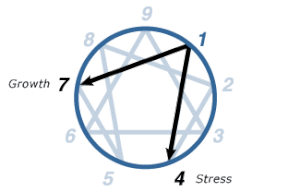
Organized, in order and difficult. They strive to maintain the highest standards, but this makes them vulnerable to criticism and criticism.
The most common problem is resentment and impatience.
Strengths: wise, practical, wise and noble. They can even become heroes.
Core motivation: Want to be right, try to reach higher, make things better, stick with your ideals, defend yourself and try to achieve perfection without being judged by anyone
Typical characters: Confucius, Plato, Nelson Mandela, Margaret Thatcher, Prince Charles, Kate Middleton, Michelle Obama, Al Gore, Hilary Clinton, Rudy Giuliani, Osama bin Laden, George Harrison, Joan Baez, Celine Dion, Ralph Nader, Noam Chomsky, Bill Moyers, George F. Will, William F. Buckley .
How to sell them: You should arrive on time, introduce products to be realistic, talk face-to-face, frank, avoid roundabouts. For perfectionists, absolutely do not express inconsistent behavior or violate moral standards.
2. Emotional people (The Helper)
Be generous, like to express feelings of affection, satisfy aspirations and get along with people, always try to please others but don't want to be overlooked. They are always looking for respect.
They are people who are easily sympathetic, friendly and have a warm heart. They are close, generous and willing to sacrifice themselves but are also very mushy, flattering and trying to please everyone.
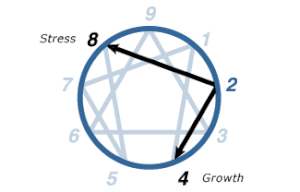
They are willing and proactive to get along with people but are prone to being willing to do anything for anyone just to be recognized.
Their problem is that they like to be possessed and only see their own needs.
Core motivation: To be loved, to be able to express feelings to others, to feel necessary and appreciated, to make others respond to them and confirm their requirements and demands.
Typical characters: Eleanor Roosevelt, Nancy Reagan, Monica Lewinsky, Ann Landers, John Denver, Lionel Richie, Stevie Wonder, Barry Manilow, Dolly Parton, Josh Groban, Kenny G, Paula Abdul, Priscilla Presley, Elizabeth Taylor, Danny Thomas , Martin Sheen, Jennifer Tilly, Danny Glover .
How to sell them: While with group 1 people, you need to talk directly, directly, and can skip the "warm-up", then for group 2 people, you need to take time to learn them. Ask about your home, work . Taking care of small details will be factors they will appreciate you later.
- For people in this group, you should do the little things to help them and need to focus on building relationships with them more, more warmly.
- For this group, don't try to accelerate.Absolutely not to say flirtatious, general.Express their thanks on a regular basis.
3. The ambitious (The Achiever)
Being able to adapt well, excel, always have goals, motivations, be aware of personal images, and always try to succeed to gain the respect and admiration of others.
They are easy to create trust, attractive and charismatic. Living with ambition, talent and energy, group 3 also wants to receive recognition from the society and has a great push on innovation.
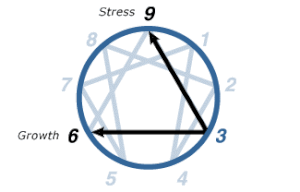
They have diplomatic and poignant talent but sometimes are overly concerned about the outside image and what others think of them.
The problem they often encounter is "job addiction" and competition.
Core motivation: Want to be recognized and different, to be noticed, to be admired and to impress others.
Typical figures: Augustus Caesar, Bill Clinton, Tony Blair, Prince William, Muhammed Ali, John Edwards, Mitt Romney, Oprah Winfrey, Deepak Chopra, Tony Robbins, Bernie Madoff, Bryant Gumbel, Michael Jordan, OJ Simpson, Tiger Woods, Lance Armstrong, Elvis Presley, Paul McCartney, Madonna, Sting, Whitney Houston, Jovi Jon Bon, Lady Gaga, Taylor Swift, Justin Bieber, Will Smith .
How to sell them: Start with complimenting them. Say how great they are, how successful they are.
- Products sold to them must be based on characteristics that support them to succeed and work more effectively.Keyword (keyword) sales for this type of personality is a product that will help you"work faster, more efficiently, do more work".With these features, the latching is quite solid.
- Absolutely no mention of their failure, even their tired looking looks should not be mentioned.
- Group 3 is a potential customer group, but can also "go back and forth" if it makes them feel disrespectful.So, even if you are receiving guests, if they come in, you need to apologize to the guests and move on to greet them immediately.
4. Individuality (The Individualist)
Temperament is erratic and usually only concerns me. They want to connect deeply with the inner world and they feel the most vibrant vitality when being exposed to emotions.
Group 4 people understand themselves, are sensitive and reserved. They are sincere about their emotions, creative, personality but their mood is also changing.
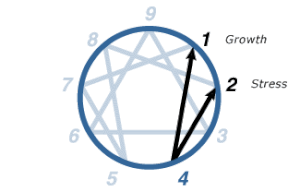
Refusing to help others because they feel hurt and weak, they will be discouraged and separate from normal life.
The problem they often encounter is self-abuse, melancholy and whining.
Core motivation: Want to express yourself and your personality, create and surround yourself with beauty, maintain certain moods and emotions, actively withdraw to protect your image, take care of emotional needs before attending any event and often attract people who like to "get liberated" like them.
Typical figures: Tchaikovsky, Gustav Mahler, Edgar Allen Poe, Yukio Mishima, Anne Frank, Bob Dylan, Paul Simon, Leonard Cohen, Angelina Jolie, Winona Ryder, Kate Winslet, Nicolas Cage, Johnny Depp .
How to sell them: When selling to people in group 4, make them feel different. Praise their style of dress even though you see that style is quite . different. When empathetic, they will be more willing to share.
Avoid being more dominant than them. The personality they want to excel and be unique.
5. The rational (The Investigator)
Deeply, like to innovate, or hide and be quite separate. They like information, knowledge and don't like to express their emotions. Their purpose is to enrich their knowledge and because of that, they are very logical. For them, everything must be meaningful.
The rational is very alert, wise and curious. They can focus on a complex idea or skill. They are independent, innovative, creative.
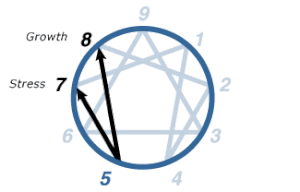
The mind is usually disengaged by too many thoughts in mind and building what they want with imagination. They are carefree but also emotional and lively.
The problem they often encounter is eccentric, unconventional retirement and seclusion.
Main motivation: To possess knowledge to understand the world, to have everything to find ways to protect yourself against threats.
Typical figures: Siddartha Gautama Buddha, Albert Einstein, Stephen Hawking, Vincent van Gogh, Edvard Munch, Alberto Giacometti, James Joyce, Bill Gates, Mark Zuckerberg, Tim Burton, David Lynch, David Fincher, Jodie Foster .
How to sell them: Talk about their similarities, be open to their ideas. When talking about products, it is necessary to ensure practicality and logic.
Never doubt their abilities or the information they give. With this group of people, asking questions about accuracy will make them very uncomfortable. Avoid asking too personal questions.
6. Loyalist (The Loyalist)
Attractive, anxious, suspicious but also very responsible. They always plan for the worst possible situations.
They are highly committed, towards safety, very reliable, hardworking, responsible and endeavor to deserve that trust. Group 6 is excellent in finding and solving problems, but also acts in defense, sometimes avoiding and worrying.
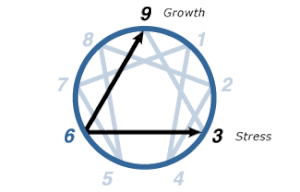
They are cautious and hesitant, but they also know how to resist, have some stubbornness and objections.
The problem they often encounter is often suspicious and not believing in themselves.
Core motivation: To have the safety to feel always protected by others, to have certainty, peace of mind, to check the attitude of others towards them, to fight against anxiety and danger dangerous.
Typical figures: Krishnamurti, Johannes Brahms, Mark Twain, Diana, Prince of Wales, Malcolm X, Marilyn Monroe, Tom Hanks, Mike Tyson, Bruce Springsteen, U2's Bono, Melissa Etheridge, Eminem, Oliver Stone, Michael Moore. .
How to sell them: Because this group of people always has a feeling of anxiety, so for them, be optimistic. Help them make the decision as easy as possible. Of course, this decision needs to be grounded and reassured about the risks.
Do not give an opinion that is not familiar to them. Do not create a pressure to deal and do not avoid the concerns they give.
7. Enthusiastic (The enthusiast)
Actively participate in a happy, resourceful, eager to learn attitude, always aspire to promote new ideas, create open future plans for them many choices but avoid pain and discomfort. Sometimes, they are also scattered.
Group 7 is the outward, optimistic, flexible and non-restrictive people. Prominent with the likes of humor, jokes, courage and reality but sometimes they also misapplied their talents, become overly, easily dispersed and lack of discipline.
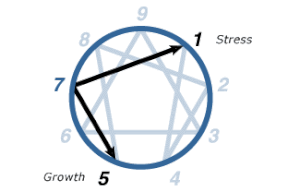
They are constantly looking for new, interesting experiences but can also be distracted and feel exhausted right away in what they are doing.
The problem that enthusiastic people may encounter is impatience and impulse.
Core motivation: Want to maintain freedom and happiness, don't want to give up valuable experiences, try to keep yourself excited and busy, while limiting suffering and sadness.
Typical figures: Dalai Lama (14th), Galileo Galilei, WA Mozart, Thomas Jefferson, Benjamin Franklin, John F. Kennedy, Malcolm Forbes, Richard Branson, Elton John, Mick Jagger, Fergie, Miley Cyrus, Britney Spears, Katy Perry, Brad Pitt, Robin Williams, Jim Carrey, Mike Meyers, Bruce Willis, Leonardo DiCaprio, Charlie Sheen, Cameron Diaz, Paris Hilton, David Duchovny, Larry King, Howard Stern, Simon Cowell .
How to sell them: Salespeople should have energy and enthusiasm compatible with their energy level and enthusiasm. Be optimistic and make many choices for them.
With this type of person, do not show pessimistic or negative attitude.
8. The challenger (The challenger)
Be confident, definitive, always pursue the truth and can use your influence to bring about good things. However, they are quite stubborn and conservative.
Group 8 is very confident in themselves, courage and assertiveness. Always wanting to protect others, resourceful, straightforward when speaking and decisively, but their "ego" is also quite large and domineering.
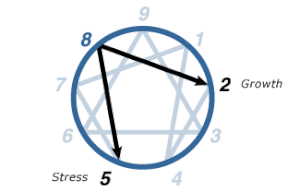
This group feels they are forced to control everything around them, especially people, sometimes like to confront and be scary.
The outstanding issue of strong people is that their anger is hard to control and allow themselves to be hurt.
Core motivation: Want self-reliance to prove strength and resist weaknesses, become an important person to the world, dominate people around and control every situation that happens to them.
Typical figures: Franklin D. Roosevelt, Winston Churchill, Oskar Schindler, Fidel Castro, Martin Luther King, Jr., Lyndon Johnson, Mikhail Gorbachev, Saddam Hussein, Senator John McCain, Donald Trump, Pablo Picasso, Ernest Hemingway, Toni Morrison, Serena Williams, James Brown, Aretha Franklin, Keith Richards .
How to sell them: Be straightforward to them, offer both good and not good aspects of the product and should present it clearly to them as "one is ., two is .". .
Need to match their feelings, but make them feel like they are the decision makers. Do not try to deceive or provide inaccurate information to them.
9. The peacemaker
Easy to absorb, make others feel reassured. They like peace, harmony and positive relationships, dislike of conflict, stress and evil intentions. The weakness is easy to resign and sometimes complacent.
Group 9 are stable, open and reliable people. They are often creative, optimistic, and sympathetic to others, at the same time, ready to compromise with people to keep peace.
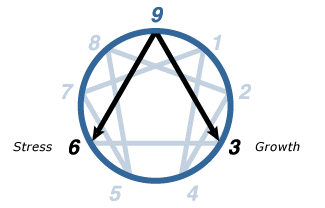
They want everything to be run smoothly and always without conflict but this can make them tend to be satisfied, satisfied, simplify the problem and minimize situations. cause anxiety.
The problem they encounter is not to change and to be stubborn.
Core motivation: Wanting to create harmony in everything, avoid conflict, stress, don't want to change things that already exist, resist anything that worries or annoys.
Typical characters: Queen Elizabeth II, Abraham Lincoln, Dwight D. Eisenhower, Gerald Ford, Ronald Reagan, George W. Bush, John F. Kennedy, Jr., General Colin Powell, Walter Cronkite, Carl Jung, Carl Rogers, Joseph Campbell, Walt Disney, James Taylor, Janet Jackson, Jack Johnson .
How to sell them: Focus on the positive side of the product. Speak slowly and attach the information you tell what they are familiar with.
Do not pressure them or find ways to confront them.
So how do you know which customers belong to the group when the chance to meet them is only 1 time?
Please Using the ability to communicate, actively approach, get acquainted with intimate responses, you will know how that person has a tendency to personality! With some initial courtesies such as: "How are you?" If the other person responds enthusiastically, he / she can be a second person - an emotional person, a group of 7 - enthusiastic people or a 9th group - a moderate person.
If you want to go to work right away, this person can be a group 1 - perfectionist, group 3 - ambitious or group 8 - strong person.
When giving too much information that this person seems to be surprised, or does not pay much attention, then he or she must not be a 5th person - a rational person.
According to sales experts, want to quickly reach customers and achieve sales goals, you need to "talk to them, understand some of the personality, then apply the methods, you will succeed. ! ".